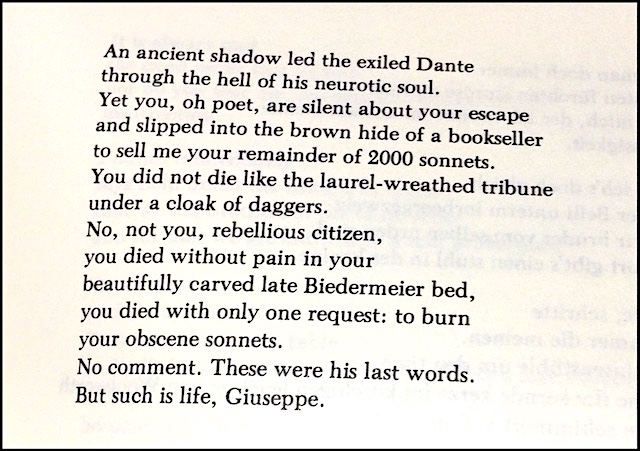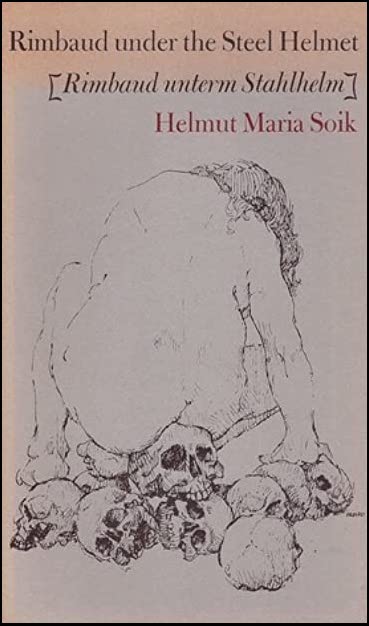Excerpted from a heroic poem of more than 200 lines, entitled ‘Laudatio for the great Roman Folkpoet Giuseppe Gioacchini Belli : 1791-1863’, by Helmut Maria Soik:

You won't find much about Soik online. Even the German Wikipedia has no page for him. In his introduction to the book, Gugelberger tells us that in 1940 Soik "was sent to the Russian front, fought in the battle of Stalingrad, and was made a prisoner of war. Until 1950 he was forced to work in a Polish mining camp. When released, he returned to Germany and settled in Celle, a lonely but undestroyed northern city, and retreated more and more from competitive society in order to lead the dedicated life of a writer. In a Germany beyond recognition he himself was rather unrecognized for a long time. Whenever he wrote, the war experience infiltrated his poems. It became impossible to erase this particular 'German experience.' He became a figure similar to Franz von Gerlach in Jean-Paul Sartre's Les Sèquèstres d'Altona [The Condemned of Altona]. [He lived] 'underground' with his memory and a lost culture which he once admired but which did not prevent its own barbarism, and which is perhaps best summarized in Soik's own lines about a German officer”: That he enjoyed man-hunting behind the front lines and loved to read Hölderlin after executions shall never be known to posterity
Gugelberger goes on to point out that “We can still hear [Paul] Celan’s voice delyricized by [Günter] Eich’s simplicity in these lines from Soik’s ‘Night and Naught,'” another poem in the collection:
A man went to bed with a bundle of poems, wrote on his knees despite the cold in the room. He knew: for industrial society, for competitive society he was useless.

